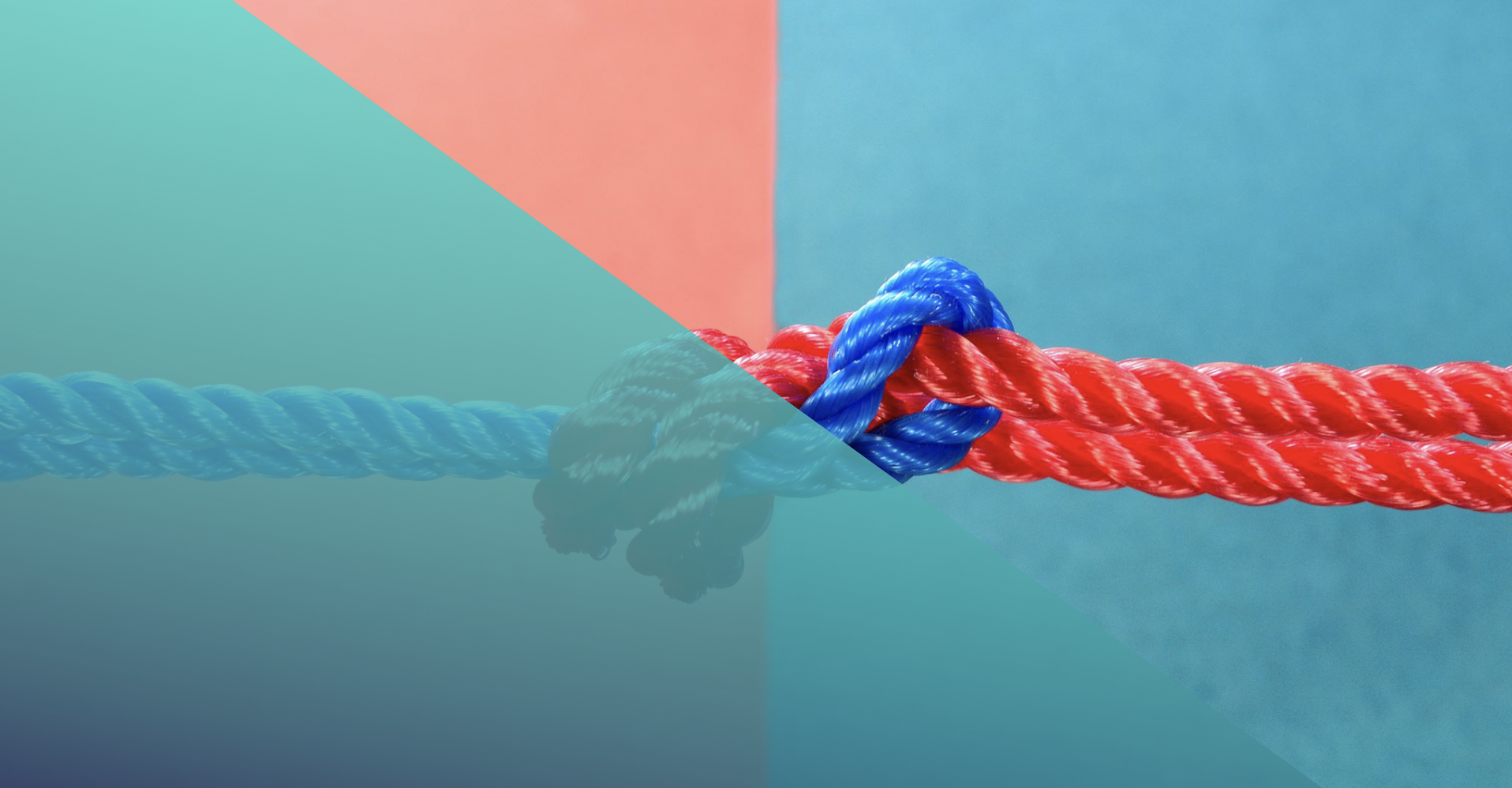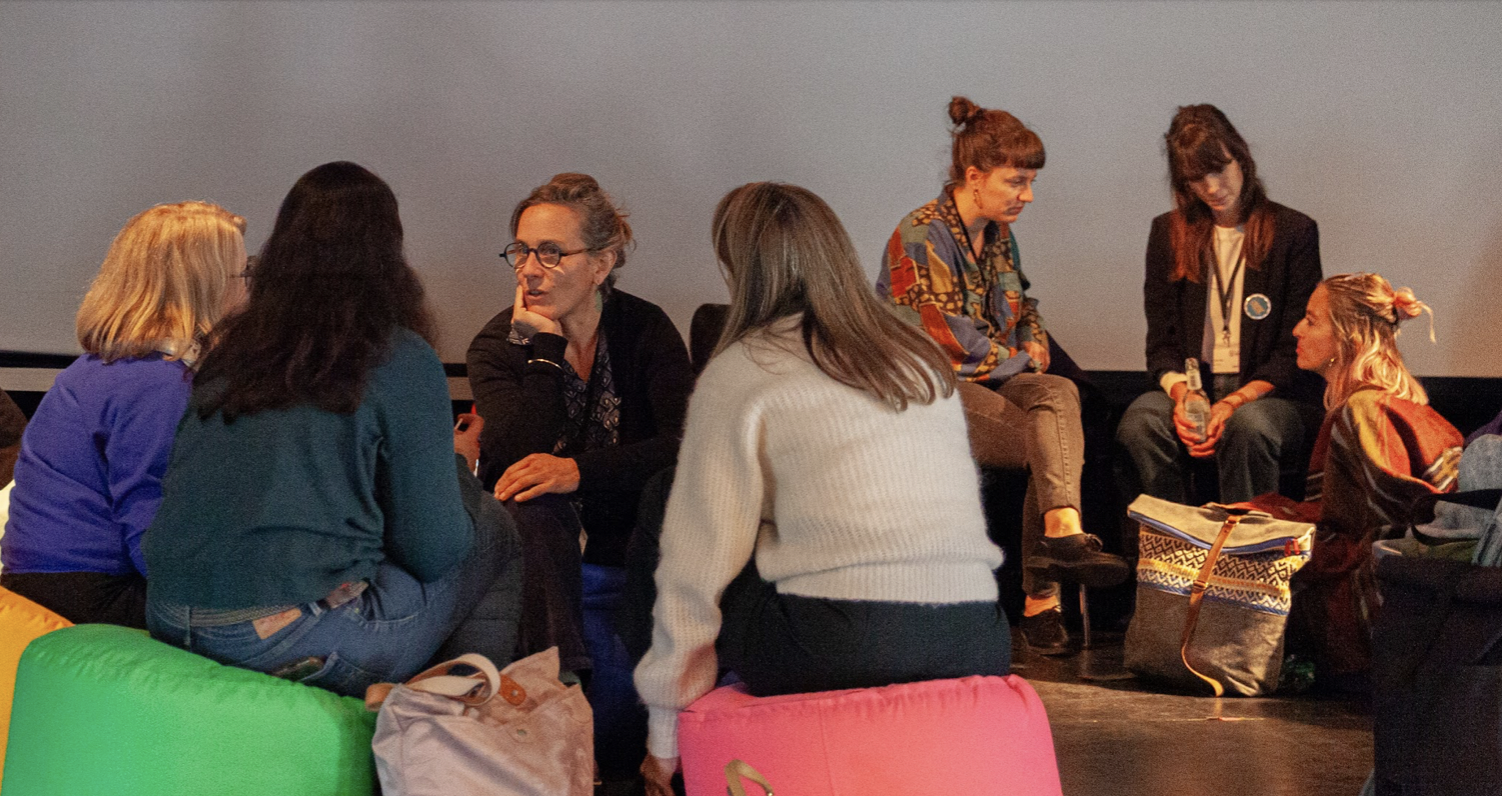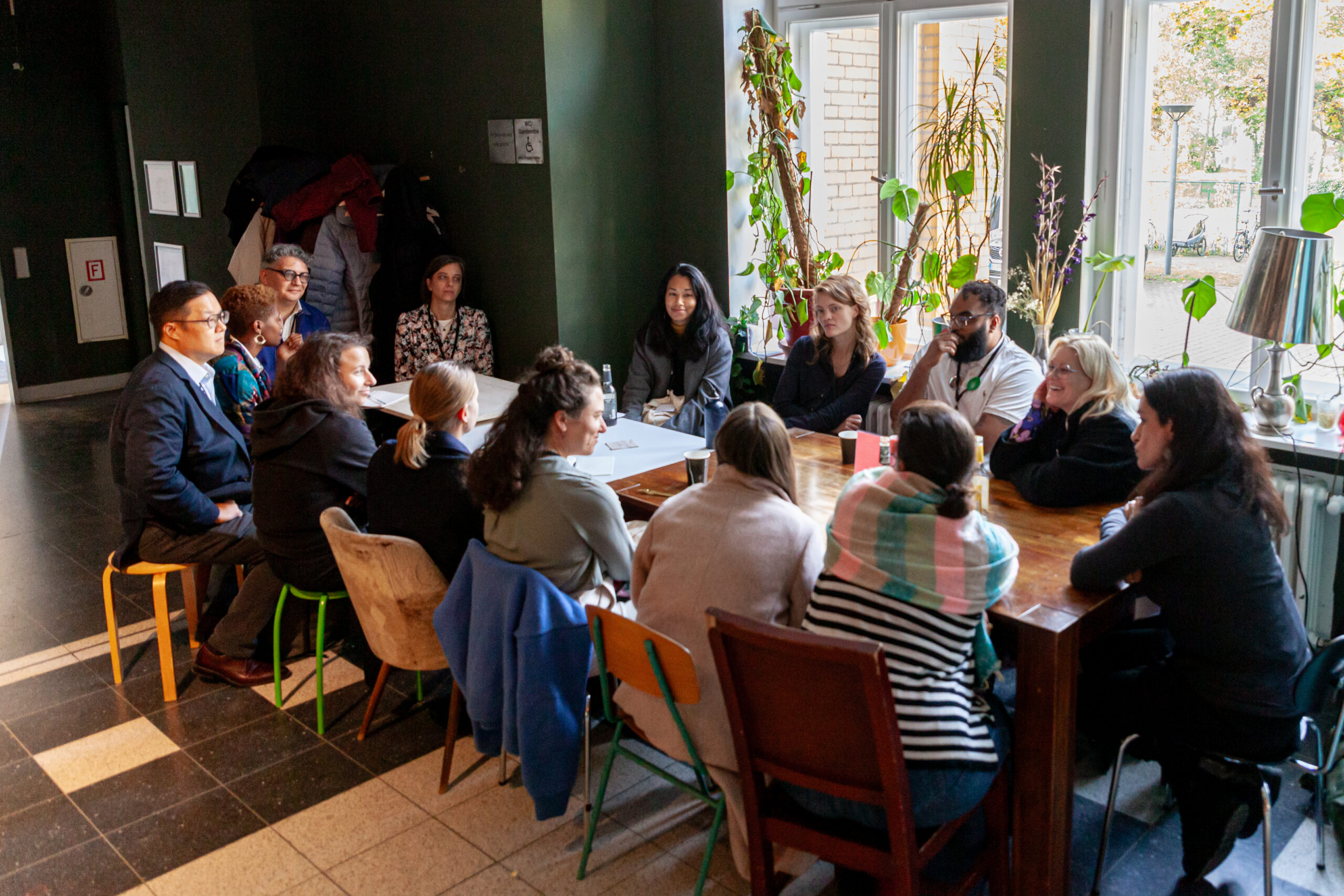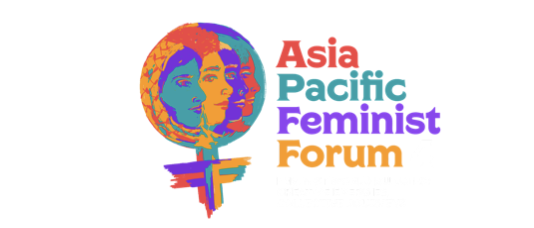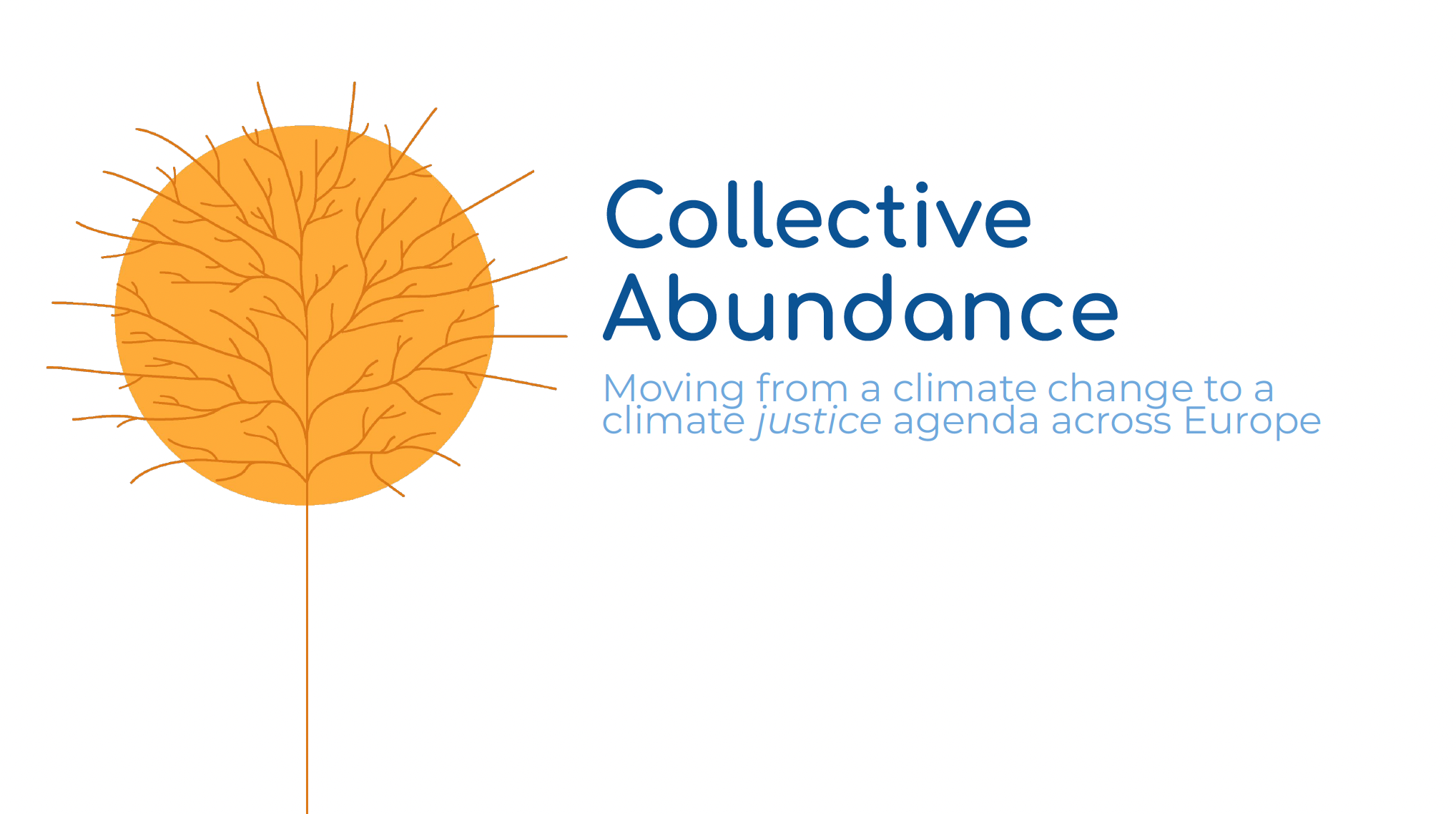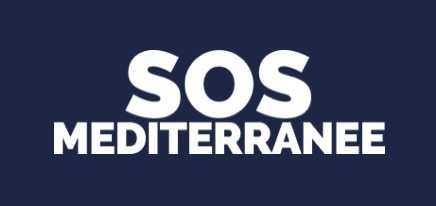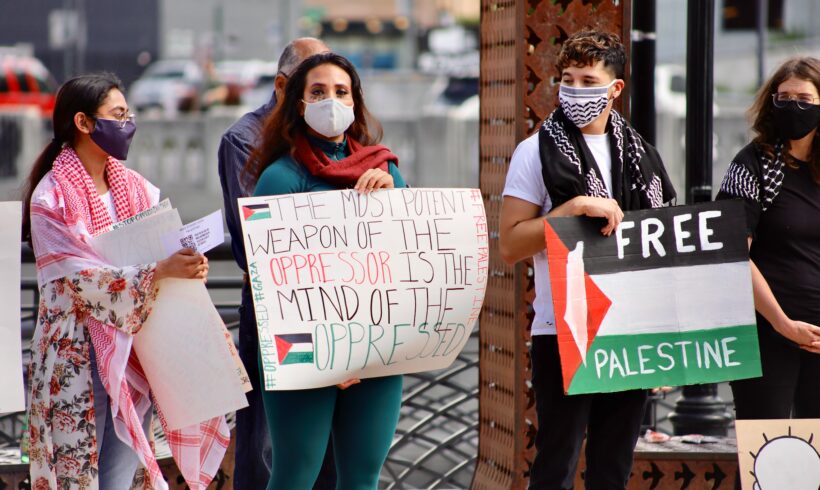Written by Michael Kourabas, Director of Partner Support & Grantmaking at UUSC EDGE board member, Michael Kourabas, recently attended the...
2023 EDGE Conference Recap
Today’s global challenges, such as climate change, systemic racism, eroding democracy, rising violence, land grabbing and financial crises require bold systemic solutions and increased resourcing directed towards systemic change. Grassroots organizers and movement leaders have extensively advocated, designed and implemented alternative solutions targeted at dismantling the underlying systems of oppression that are creating and fostering these systemic crises. White supremacy, patriarchy, anthropocentrism, extractivism, colonialism and capitalisms (to mention some) are constantly challenged by alternative systems that center care, justice and equity.
On the other hand, philanthropy is falling short in adequately and boldly resourcing these systemic alternatives, while at the same time directly benefiting from the same system of extraction and accumulation that are inherent to capitalism and productivism.
The 2023 EDGE Conference was a space to deeply reflect on the causes and consequences of these systemic crises, how they directly impact the role of philanthropy and its relationship with movement organizers. Together, funders and movement representatives explored what it means for philanthropy to act as boldly as the groups they are funding, by uplifting voices and experiences at the leading edge and allowing space for challenging political conversations that are necessary to shift power and resources towards those at the forefront.
Thank you to everyone who joined us for this brave space of building community and changing philanthropy for systemic alternatives. We look forward to seeing you at our next conference in 2025.
Special thanks to the Conference Planning Committee and facilitators for all their wisdom and support.
IMPORTANT LINKS
Help save Oyoun: Disastrous Crackdown on Civil Space in Berlin

We were very lucky to hold our conference at Oyoun. Unfortunately, as of 6 November, the Berlin Senate has taken measures to close down this important cultural centre. The reason? A “mourning and grieving” event organised by Göttingen Peace Prize winner “Jewish voice for a just peace in the Middle East” at Oyoun on 4 November. Oyoun is now asked to shut down by the end of this year despite a binding grant agreement with the government. They are fighting the decision and need our help.
Organizing For Palestine
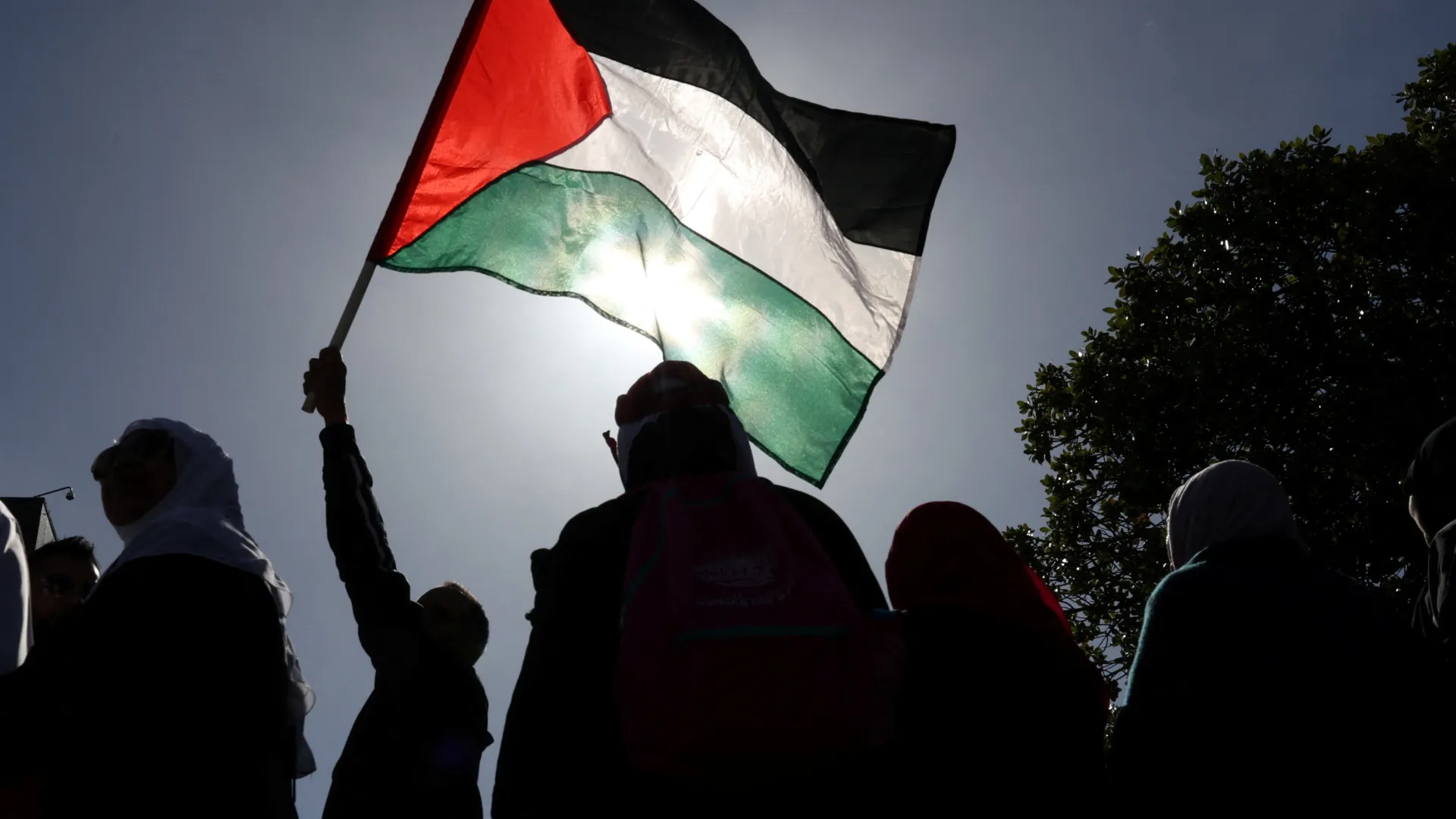 The EDGE Conference spotlighted injustices and failings of current systems. This included conversations on the ongoing genocide in Palestine and a call at the closing of the conference for philanthropy to commit to Palestine despite opposite trends. EDGE is running a list of pledges made during the closing for accountability.
The EDGE Conference spotlighted injustices and failings of current systems. This included conversations on the ongoing genocide in Palestine and a call at the closing of the conference for philanthropy to commit to Palestine despite opposite trends. EDGE is running a list of pledges made during the closing for accountability.
Conference Feedback
List of Participants
MORE ON SESSIONS
While the conference planning committee and EDGE staff planned the HEAD sessions, we invited participants to shape the conference agenda by submitting HEART and HANDS sessions. Thank you to everyone who helped plan and facilitate all these exciting conversations. Below are an overview of each session as well as learnings collected by some organizers.
Head Sessions: Plenary & Keynote Conversations
Head Sessions provided the theoretical framing and systemic analysis lens.
- Keynote on Systemic Racism and Racial Justice
- Focusing on Money and Interrogating its Sources
- Resistance & Systemic Alternatives: supporting the movements that are building and fighting for a better world
- Swimming upstream: a fishbowl on organising funders toward action
With Jasmin Mouissi (EDGE Facilitator) and Ali Khan (EDGE Board member //Open Society Europe and Central Asia)
This session explored the topic of systemic racism, including its structure, forms, dimensions, and history. It also provided an opportunity for participants to reflect on how racism shows up in their own lives and organizations, as well as to learn about the work that funders are doing to address this important issue.
With Inna Michaeli (AWID), Soheir Asaad (Rawa Fund ), Emilia Reyes (Equidad de Género: Ciudadanía, Trabajo y Familia ), Jhannel Tomlinson (Next Generation Climate Board), Rose Longhurst (Open Society Foundation Europe and Central Asia) and Kyra Bush (CS Fund)
This panel explored the role of money in progressive philanthropy and how it can be used to dismantle the capitalistic system and its root causes of systemic crises. We had a conversation about the source of money, and the deeper levels of harm that resource hoarding has created in society. We also discussed whether the goal should be to decolonize philanthropy or to dismantle it altogether.
With Marta Music (Global Tapestry of Alternatives), Gil Alvarenga (Landeless Rural Workers Movement (MST), Janosch Sbeih (Philanthropic Consultant), Misun Woo (APWLD), Mayra Zamaniego-López (FRIDA – The Young Feminist Fund)
Oppressive systems do not leave room for multitudes and exclude ideas outside of their narrow definitions. Systemic alternatives, on the other hand, are intersectional “visions over visions” that build on one another and center autonomy, sovereignty, and the rights of self-determination. This is why different communities can develop different solutions to the same problems and philanthropy needs to organize resources to be able to support diverse systemic alternatives.
By hearing from practitioners and learning about the challenges they face, this session helped to raise awareness of the importance of these alternatives and the need for philanthropy to support them.
With Amanda Gigler (EDGE Senior Advisor), Asad Rehman (War on Want), María Palomares Arenas (Calala), Charles Long (Movement for Black Lives), Gaby Oré Aguilar (Wellspring Philanthropic Fund), Karin van Boxtel ( Both ENDS)
EDGE programmes support social and planetary justice by providing opportunities for members and broader engaged communities to learn, network, and organize. This session discussed EDGE’s current programmes, lessons learned, and how to shape and use these programmes to advance social and planetary justice.
Hand Sessions: Conversations on Collaborations
Hand Sessions provided space for concrete collaborations like finding co-conspirator for a project by presenting how an organization is supporting systemic alternatives globally and examples of systemic alternatives in practice.
Day 1: Organizing Progressive Philanthropy
This session was organized by the Wellspring Philanthropic Fund
This session introduced a new funders initiative to advance a gender-just transformation of the global economy. The collaborative takes an intersectional and structural approach, and centers gender justice and feminist economic principles in its learning and funding components. EDGE funder members were invited to join the initiative.
This session was organized by Leap Collective and Robert Bosch Stiftung.
This session introduced the Abundance Fund, a new fund to help shift the European climate movement and funders from a climate change to a Climate Justice agenda across Europe. The fund was created with the intention of building solidarity and collective imaginations amongst climate justice organisers, and connecting this to the devolution of decision-making power regarding who, how and what to fund to the organisers themselves.
Session Highlights & Main Learnings
- There is a growing desire to fund movements more effectively
- Experiments like Collective Abundance – created for and by climate justice organizers – show a way forward
- Funding organizer-led participatory grantmaking in this way is CHEAPER and MORE EFFECTIVE than traditional “movement-focused funding”
- Dismantling reporting requirements doesn’t mean outcomes will not be shared, it means funder-grantee communication/relationships are strengthened and feedback is rooted in storytelling/diverse mediums.
- What’s in it for Funders? Access to local networks and the ability to give smaller grants via organiser-led facilitations
Identified Next Steps
- We are working to strengthen the climate justice movement in Europe, country-by-country.
- Stay in touch to learn from our progress via regular update webinars and to learn how to support us along the way.
- Cross-country dialogues are envisioned for the future.
- We also want to build a coalition of former grantees to collectively advocate for better funding practices in the climate (justice) philanthropic space.
This session was organized with BothEnds, Fundo Calala, Laudes Foundation
This session discussed the new economic and trade system that is being worked on from different perspectives, including economic system change, trade in feminist foreign policy, and social economy.
Organized with Both Ends
Large climate investments are still funding conventional, high-intensity agriculture, which is responsible for biodiversity loss, ecosystem destruction, and climate change. Philanthropy can play a role in addressing this funding gap by ensuring that more funds are available for small, local, truly sustainable agriculture and food systems.
- Growing EDGE Exchange and Learning Community around Agroecology
- While this is already a somewhat nascent stage at EDGE, much more could be done to gather funders around this topic to engage in a more strategic exchange of information, ideas, and inspiration to really gather as a community of practice. It was also acknowledged that while there is a lot of overlap and common ground with other existing EDGE groups however a specific space for actions around Agroecology was considered to be a worthwhile addition.
- Promoting a Common Narrative around Agroecology
- One of the key stumbling blocks still encountered in the promotion was the issue of the ago-industrialist fear project when it comes to food security. This narrative that only large-scale industrial farming will secure food for the planet’s future needs to be challenged as part of the general counter-narrative to the capitalist growth ideology. To demystify the agroecology movement, we need a clear and communicable narrative based on values that emphasize the real potential (also in terms of food security) of the Agroecological alternative we want to see. One that is rooted in true local practice and free of co-opting practice.
Identified Next steps
- Enlarge the Agroecology space within EDGE (several present didn’t know that this was already a thing)
- Make this space more concrete (mailing list, meeting spaces, knowledge platforms, active engagement)
- Identify tools and support for narrative development (several were mentioned already, such as the Common Cause Foundation, Culture Hack Labs)
This session was organized with Open Society Foundations (OSF), Urgent Action Fund Africa (UAF-Africa), and Environmental Defenders Collaborative (EDC):
This session brought together funders to discuss their approaches towards supporting the protection of defenders and activists across thematic fields. The goal was to increase awareness of the need to incorporate protection into grantmaking, provide greater opportunities for protection groups to access funding, and create spaces for funders and defenders to exchange ideas on challenges and solutions.
This session was organized with Buhles Consulting and Global Greengrants Fund
A merged session on participatory grantmaking to share lessons learned and best practices from practitioners, and discuss challenges and opportunities for scaling up.
This session was organized with GRAIN, ThousandCurrents, United Support of Artists for Africa, Amazon Defenders Fund at Amazon Watch, A Growing Culture, and Grassroots International.
Funding social movements is complex, but it is essential for addressing the world’s most pressing challenges. This session brought together experts to discuss the challenges and opportunities of funding social movements in a timely and effective way. Participants learned about the different ways to support social movements, the key principles that should guide funding, and how to ensure that support is aligned with the needs and priorities of social movements.
Session Highlights & Main Learnings
- Lots of interest and appetite for this topic. Well attended by both funders and movement reps, people wanted to stay longer, and similar conversations arose throughout the conference.
- Participants showed a great interest in listening and learning practical experiences from other donor/philanthropic/ solidarity actors on how to accompany social movements.
- Frank and open dialogue among actors from the donor community and social movements on the lack of accompaniment, practices that are not in alignment with SM strategies and visions, and suggestions.
- Self-reflection from donor actors questioning restrictions imposed by their organizations and how to better navigate or transform these dynamics to accompany social movements.
- Questions of how to better define/understand “social movements” and the need to re-evaluate the notion of “movement participants” within the EDGE space are important.
- Recognition that since, in fact, grants are provided to organizations or networks within movements, inter-organizational dynamics and issues of trust, representation, and accountability are important.
- Prioritize dialogue; prevent extractive practices in the dialogue process
- We are ready to get practical and concrete, and now need clear methodology, tools, examples, and resources.
- Re-signify mobilizing funds to accompany movements beyond the philanthropic paradigm.
Identified Next steps
- Request EDGE to host/co-sponsor a webinar series for wider discussion of this issue. This could include sessions with movement participants, NGO allies and funders, and funders learning sessions among themselves with different models and examples.
- Over the course of the year, develop a set of guidelines and a toolkit around principles and practices for providing effective and helpful support to movements to launch at next year’s conference with case studies and participatory methodologies.
This session was organized with Rawa Fund, Movement for Black Lives (M4BL), GGJ, and GRI.
This session explored the role of philanthropy in supporting the Palestinian struggle for liberation, with a focus on solidarity between Black and Palestinian movements. Participants shared their experiences and insights on how to build deep solidarity and accountable philanthropic support.
With Fondation Danielle Mitterrand and Fondation Mycelium
This session discussed the challenges and opportunities of supporting grassroots movements in France and Belgium, in a context of authoritarian trends, rise of far-right, and shortage of resources. It also explored ways to increase the resources available to these movements and strengthen the ecosystem of “post-capitalist” funding in francophone Europe.
Day 2: Resourcing Systemic Alternatives
This session was organized with Women and Harm Reduction International
Stigma challenge game, a day in the life of a woman who uses drugs, examination of drug policy as a feminist issue, introduction to WHRIN and some models of community support as key systemic alternative activities.
This session was organized with Lankelly Chase Foundation
Lankelly Chase Foundation’s decision to close and redistribute its capital raises many issues for progressive philanthropy. This session explored how to manage the tension between the risk of harm created by the closure of ‘progressive’ foundations, and the need to create space for radical reimagining. It also explored the need for philanthropy and movement actors to coordinate strategically around shared purpose and stewardship, in order to mitigate risks and realize the possibilities of this moment.
This session was organized with ADD International
This session built on the ‘heart’ session during which participants unearthed some of the core values, beliefs and reasons why ableism exists in philanthropy. In part two of this conversation, participants built solutions by looking at what support, training, advocacy and other initiatives might be needed to overcome this.
This session was organized with DisCo (Distributed cooperatives for radical workplace democracy)
This session explored anticapitalist, decolonial, and intersectional feminist tech through a journey into sound. The speakers discussed the current corporate-dominated tech landscape and how it can be seen as a dystopian nightmare. They will also talked about how the world’s disenfranchised can use their social and technological resources to create a more just and equitable tech future.
Session Highlights & Main Learnings
- We used music and visuals to incite a group discussion on what anticapitalist, decolonial, and intersectional feminist tech could look like. As part of this imaginative exercise, we asked, “How could technology and the economy be more like music and nature?”. Participants were given a long moment to consider these prompts individually before talking in small groups amongst themselves. Finally, they were invited to share the highlights of their discussions with the larger group, including their visions of technologies aligned with their values and, by extension, those proposed by EDGE.
- We followed with an overview of DisCO.coop as a framework that lets people develop and articulate alternative economics in the present to progress from economic alternatives to economic counterpower. The discussion was very rich with plenty of feedback from participants.
Identified Next Steps:
- We invite participants to check out our websites, DisCO.coop and DisCO Basics to become more familiar with our work, especially the upcoming DisCO Pink Paper which directly addresses the topics introduced in the session.
This session was organized with CEECCNA Collaborative Fund
This session focused on the impact of the Ukraine war and other crises on Central and Eastern Europe, Caucasus, Central and North Asia (CEECCNA). It featured regional activists and grassroots-based grantmakers who discussed the direct and indirect impacts of the war, ongoing human rights and humanitarian crises, and under-resourcing patterns. The goal was to broaden perspectives beyond the context of Ukraine and discuss how the philanthropic sector can be in solidarity with the region.
This session was organized with Open Society Foundations (OSF), Voqal, and Nina Blackwell
This session explored how foundations can best support new and transformational leaders in global development philanthropy. The discussion focused on the need to be responsive to the needs of these leaders and to shift power in the sector.
This session was organized with Global Grassroots Justice Alliance, World March of Women, and Grassroots International.
The Feminist Economy is a global grassroots movement that is working to build a more just and equitable world. This session provided a space to exchange examples and experiments with the feminist economy, celebrate victories, troubleshoot barriers, and share visions for building a feminist economy for life.
Heart Sessions: Sensemaking
Heart Sessions provided a space to press pause on ‘solution mode’ and to build collective sense-making through lived experienced, stories and values to explore questions of accountability, care, resistance, and healing.
This session was organized with the Rawa Fund
This session will explore the meaning of “decolonizing philanthropy” and whether funders are working within the same framework as decolonial and anti-capitalist movements. It will also discuss how to ensure that movement-centered philanthropy is supporting and disrupting movements, and how to radically imagine ways that philanthropy can work toward its own irrelevance.
This session was organized with Mycellium, Marius Jacob Foundation, Ktisis Capital
This session will explore participants’ privileges and how they relate to power dynamics, with a special focus on money. Participants will begin by discussing privileges in small groups, then participate in a moving debate on power dynamics in their organizations. The session will conclude with time for feedback, resource exchange, and discussion of a potential movement building around money and power transparency.
With Grace Anderson
Inspired by the work of Mariame Kaba and other abolitionists and world builders, this session will explore how to be in the practice of rooting in the reality of the issues while simultaneously embodying personal and organizational practices that move us beyond reform and temporary solutions and toward the abundant, justice and equitable world we want.
This session was organized with Code for Science and Society
This session will explore the role of anger in decolonizing philanthropy, and how it can be used as a source of knowledge and power to resist injustice and harm. Participants will engage in a listening and collective sensemaking exercise to consider multiple manifestations and uses of anger in philanthropic practice.
This session was organized with Children’s Rights Innovation Fund
This session will discuss the lack of a feminist social justice global vision for children’s rights and youth movements. The speaker will share their experiences as a youth worker who has transitioned into a philanthropic role, and how they have seen systems fail marginalized youth. The goal is to create a space for people with similar experiences to share their stories and how they are bringing those experiences to bear in their support of movements.
This session was organized with Funders Safeguarding Collaborative, Laudes Foundation, and Global Fund for Children
This session will engage participants in a discussion about the role of funders in preventing harm through their grantmaking. The goal is to help funders think through potential risks of harm (intentional and/or unintentional) that could hinder systemic change.
This session was organized with Jasmin Mouissi
This interactive session will explore racism and other forms of discrimination, and help participants critically analyze their own organizational structures and discover strategies for addressing these issues.
- Different identities, lived experiences, connection to the keynote topics, and levels of knowledge in the space (large enrichment and challenging at the same time.)
- While some voices from the audience mentioned the input might be unnecessary / no new information, others gave positive feedback on the possibility of working on a professional understanding of racism.
Identified Next Steps:
- Staying on track and continuing to pursue strategies/actions on dismantling racism on a structural level.
This session was organized with ADD International
This session will explore ableism in philanthropy, including why it is often seen as a separate issue from social justice and how it shows up in grantmaking practices. The goal is to create a safe space for participants to share their experiences and learn more about this under-resourced human rights issue.
Learning Pods
MOVEMENT PARTICIPATION
We welcomed a powerful list of movement representatives and activists to this year’s conference. Learn more about the invitation process and criteria. You can see the full list of attendees here.
| Abahlali baseMjondolo Movement SA. | Africa Movement Building Space | Arctic Indigenous Fund | A Growing Culture |
| AWID | BackOUT collective | Bishkek Feminists | Asia Pacific Forum on Women Law and Development |
| Climate Justice Alliance | Collective Abundance Projet | Equality Bahamas | CIEL |
| Front Anti Expulsions | Global Grassroots Justice Alliance | Global Arts | Feminist Workshop |
| GRAIN | Healing Justice | Helsinki Foundation for Human Rights | Global Tapestry of Alternatives |
| International Women’s Rights Action Watch | JASS/Just Associates | La Via Campesina | International Women Space* Berlin |
| Martynka | MST Brazil | Next Generation climate Board | Magazine 28 |
| Platoniq Foundation Creativity & Democracy | POMOC (Polish Migrants Organise for Change) | Popular Art Centre | Observatori del Deuta en la Globalització (ODG) |
| Prayatna Nepal | Queers Against Landlords | Riders x Derechos – Observatorio Trabajo, Algoritmo y Sociedad | Positive Women |
| SOS MEDITERRANEE | Sudanese Women Rights Action | Supporting Abortions for Everyone (SAFE) | Solidarity Network Union of Georgia |
| UK Youth Climate Coalition | War on Want | WIEGO | Taller de intervenciones criticas transfeministas antiracistas combativas |
| Women Enabled International | Women Now For Development (WND) | Women Refugee Route / On the Move | Women’s Working Group on Financing for Development |
| World Forum of Fisher Peoples (WFFP) | World March of Women Kenya | Women and Harm Reduction International Network (WHRIN) |
Site Visits
In addition to movement participants at the conference, the Conference Planning Committee and EDGE staff also curated a list of site visits called “Sip and Shift (resources) – taking a bite of what Berlin has to offer” to encourage participants to feel rooted in the conference location, learn from local activists about systemic change work and be inspired to move resources.
Fundraising Spotlights: Virtual Fair
In the last day of the conference, we held a “Systemic Alternatives Fair” where participants were able to spotlight fundraising needs and leverage some of the connections made at the conference. Below are some of the organizations actively fundraising. Reach out to Hana if you would like to be added to this list or if you have any questions. EDGE will continue to be a space for collaborations, resourcing and pushing for alignment between funders and movement partners.
Asia Pacific Feminist Forum 4
The APFF 4 Theme: Feminist World-Building: Creative Energies, Collective Journeys We are here to reflect on our collective journey to this moment, including our accomplishments, how we can make a breakthrough in our resistance against structural and systemic oppressions, and internal fractures within our movements. What writings and stories of our movements are we leaving behind to remember or celebrate as lessons learned for the future? At APFF 2024, we are inviting feminists, WHRDs, and activists in all our regions to come together not only to strengthen our movements but to learn from each other’s creative energies, share our stories of resistance, and build solidarity for our collective journey. Reach out to Misun Woo with any questions.
Collective Abundance
Collective Abundance is a new, collaborative initiative working to change the way philanthropy redistributes wealth to climate organizers in Europe. Our intermediary regranter, Abundance Fund, is rooted in movement organizing, seeking to strengthen the climate justice movement on a country-to-country basis, beginning by asking grantees to come together in conversation to discuss what climate justice is and what it looks like in their country context. This collective consensus is then used as a basis for how they choose to fund themselves (and potentially others), with full autonomy of decision-making processes throughout. Our goal is to redistribute 5 Million Euros through this fund within the next five years, shifting philanthropic practice and climate organizing along the way. Learn more about our work and the values it stems from at collectiveabundance.org, and get in touch if you’d like to collaborate. www.collectiveabundance.org
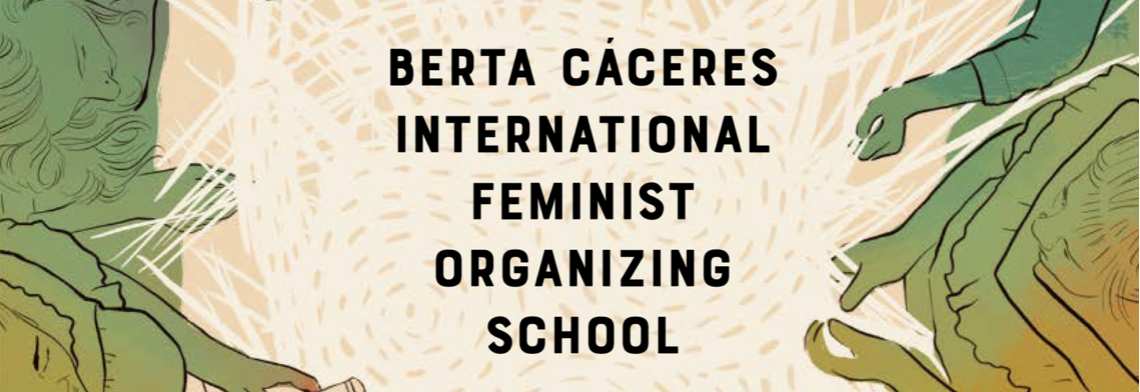 Feminist Organizing School Africa
Feminist Organizing School Africa
There is an ongoing fundraising campaign for an International Feminist organizing school in Africa – IFOSA which was inspired greatly by the Berta Caceres International feminist organizing school IFOS. IFOS remains a political school which was developed in collaboration with members of the World March of women (WMW), Indigenous Environmental Network (IEN), Grassroots International (GRI) and Grassroots Global Justice Alliance (GGJ) with a very strong intersectional view of life of the grassroots feminist movements, experiences of struggle and strength that builds on our collective motivation. These four global grassroots feminist movements share political objectives of promoting the strengthening of grassroots feminist mobilization and movement building in the world. It also responds to the need for building the feminist political subject from cultures and political experiences. IFOS is a great expression of alliances between different organizations, movements and peoples. Reach out to Sophie D.Ogutu with any question
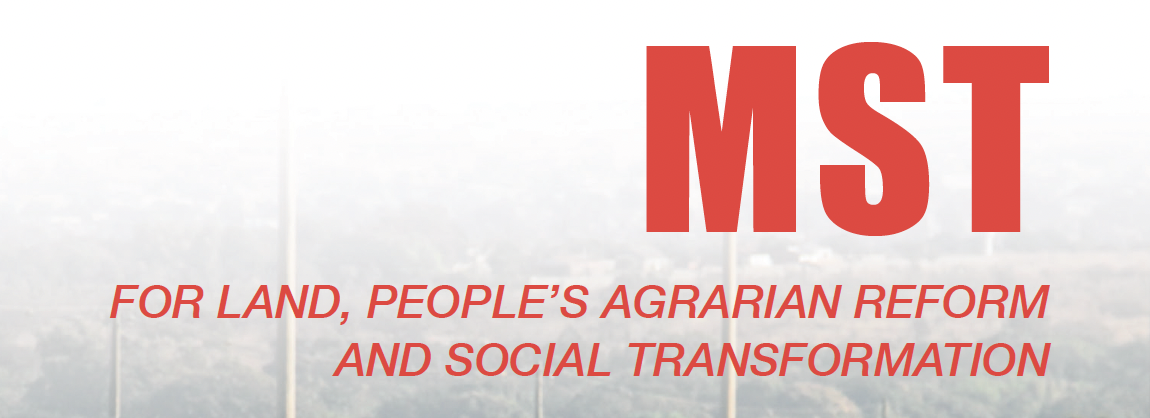 Landless Rural Workers Movement (MST)
Landless Rural Workers Movement (MST)
The Landless Rural Workers Movement (MST) is a working people’s movement that organizes landless peasants from all over Brazil to fight for access to land, agrarian reform, and social transformation. It is the result of a long history of struggle against, and resistance to extreme concentration of land ownership and social inequality in Brazil and is inspired by various processes of people’s struggles for social justice and people’s sovereignty. The National Plan “Plant Trees, Produce Healthy Food”, launched by the Landless Rural Workers Movement (MST) in 2020, is a call to Brazilian and world society for the urgency of transforming the environment defense into a peoples struggle.
As of 6 November, the Berlin Senate has taken measures to close down this important cultural centre. Oyoun is asked to shut down by the end of this year despite a binding grant agreement with the government. They are fighting the decision and need our help. Oyoun is an award-winning, bipoc-run, cosmopolitan, intersectional arts & culture venue, and a home for queer*feminist, migrant and decolonial perspectives. Oyoun employs 32, mostly marginalised, staff and fellows. The closure of Oyoun means the end of an organisation that actively contributes to Berlin’s religious, cultural, ethnic and political plurality. It also sets a dangerous precedence. We are calling on the EDGE community support this fight. It is hard to imagine a diverse, welcoming artistic scene in Berlin without Oyoun. It is truly a home for many otherwise outlooked.
The Mediterranean is often considered to be a microcosm of the larger global migration challenge. SOS MEDITERRANEE represents a localized response to this global crisis. By conducting search and rescue operations, providing medical aid, and offering humanitarian assistance and protection to migrants and refugees in distress, SOS MEDITERRANEE addresses the immediate needs of those directly impacted by the crisis. Their local action serves as a vital lifeline for individuals stranded at sea, offering them a chance at survival and safety.
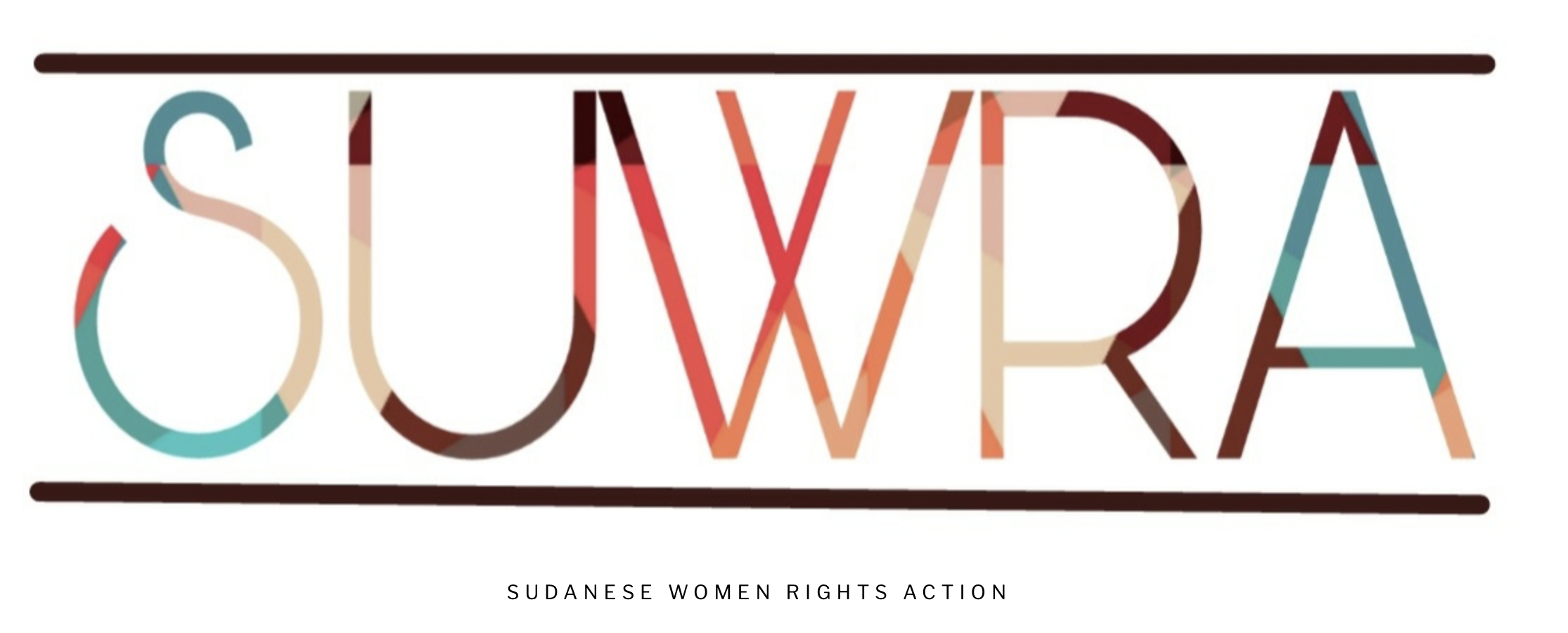 Sudan Women in Crisis: Looming Famine and Health Catastrophe
Sudan Women in Crisis: Looming Famine and Health Catastrophe
Women in Sudan have been living in catastrophic conditions since the outbreak of the April 15 war. More than 6 million have been displaced in recent months, the majority of them women and children. UNICEF said Sudan was experiencing the largest child displacement disaster, involving 3 million children, half of whom were girls. The country is in a state of complete collapse in basic services, including health, water and electricity. This is with most hospitals shut down and severe shortages of life-saving medicines. Due to power and communications cuts, the number of dead and wounded is an estimate, and the number of women is not known among the total numbers, which have been estimated at more than 12,000 since April. Entire cities and neighborhoods are under siege and fighting continues inside neighborhoods in Khartoum and the states of Darfur and Kordofan. The United Nations has received only 33 percent of the funding needed to provide humanitarian aid, with an estimated need of $2.6 billion. Humanitarian efforts to provide food and shelter continue to be carried out mostly through local efforts with some international humanitarian assistance in safer states. The alarming reports of looming famine and health catastrophe should awaken the world to save the lives of Sudanese women and children NOW!
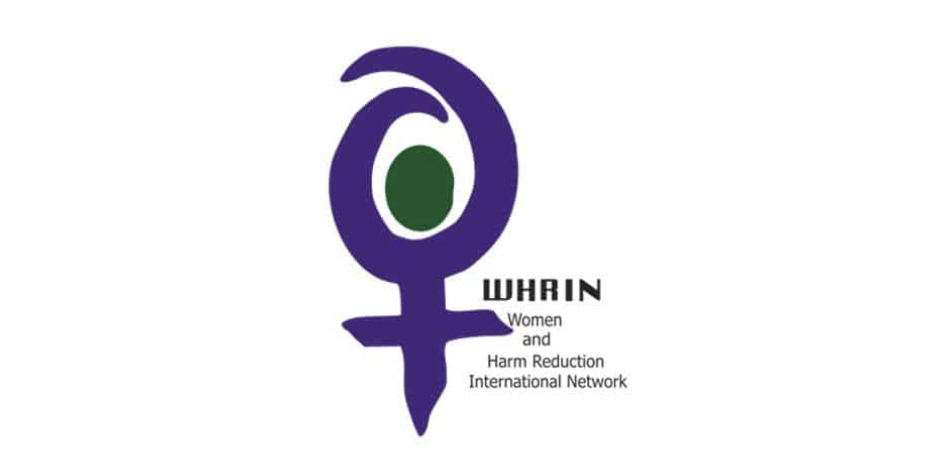 Women & Harm Reduction International Network
Women & Harm Reduction International Network
The Women and Harm Reduction International Network (WHRIN) is a global platform working to accelerate the implementation and expansion of gender responsive harm reduction for women. The vision of WHRIN is that all self- identified women who use drugs have unfettered access to available, quality, relevant health, social and legal services in a context of upholding human rights without stigma, discrimination or criminalisation. There are big funding shortfall in our efforts to expand delivery of our practical SRHR and GBV tools and community engagement in advocacy actions. Contact Ruth Birgin to learn more.
What is next?
Beyond the conference, the EDGE network offers other opportnies for collaborations, conversations and organizing towards systemic change. For EDGE members, our engagement programs include Monthly Regional Breakfast Meetings, EDGEy Wednesdays, and Members’ Dialogues to mention some.
Since systemic change cannot happen without organizing philanthropy with and for movements, we also host funder-movement Systemic Change Initiatives like the Climate Justice Initiative and COP28 organizing, Gender Justice Initiative, as well as Feminist Economic Justice Dialogues.
We look forward to continuing the work of the conference within the EDGE Network.



